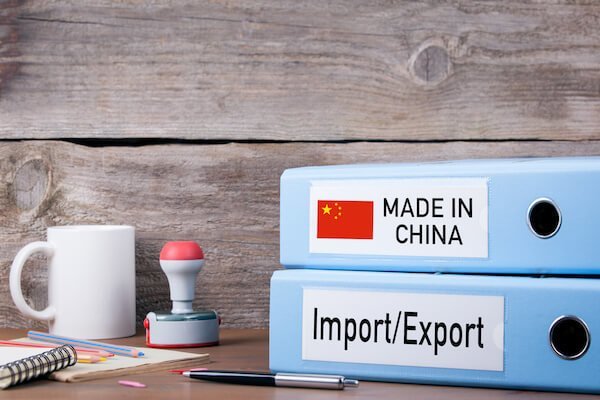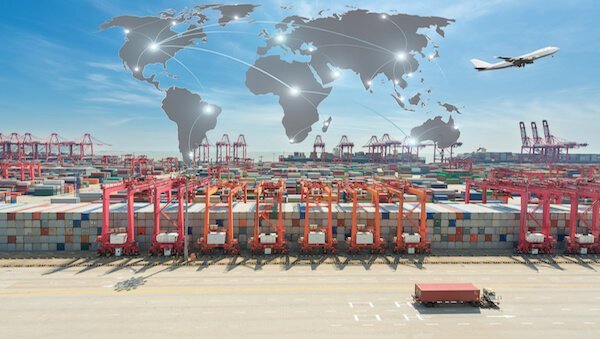China offers many benefits to SMEs looking to source their products cheaply and conveniently. Factories in China make just about anything you would need, typically at a lower cost than elsewhere, and Chinese suppliers are building a reputation as reliable salespeople with good English skills who deliver on what they promise. But doing business in China also comes with challenges, like cultural and language differences, longer shipping times, and less payment security. Here are some tips to ensure that finding and working with Chinese suppliers proceeds as smoothly as possible:
Take Advantage of International Online Marketplaces
Thanks to ecommerce sites like Alibaba, AliExpress and Global Sources, finding and communicating with potential suppliers is easier than ever. These sites can connect you to hundreds of thousands of manufacturers, distributors, wholesalers, and retailers. Because of their sophisticated search capabilities and targeted filters, they work more efficiently than a traditional Google search, and they come with buyer protections.
Know Who's Who
It's important to understand the key differences among categories of suppliers before deciding with which one you want to partner:
Manufacturer
- actually makes the product
- sells its products directly or through a distributor
Distributor
- has a relationship with a manufacturer to sell its products to wholesalers and retailers
- often has exclusive buying agreement with the manufacturer (e.g., to cover a certain territory)
- serves as manufacturer's direct point of contact
Wholesaler
- buys products from manufacturers or distributors for resale
- sell products to retailers
Retailer
- buys products from distributors or wholesalers
- sell products directly to consumers
In general, the further down the supply chain you get (i.e., wholesalers and retailers), the higher the price per unit and the greater the likelihood of complications, like running out of stock. You also may find that these types of suppliers have a more aggressive sales approach than manufacturers, who tend to prioritize relationship building. On the plus side, wholesalers and retailers usually have a lower minimum order requirement (MOQ). If it's not obvious from the supplier's online profile in which category they fall (some fall into more than one), don't hesitate to ask them for clarification.
Communicate Concisely and Confidently

When you first reach out to potential suppliers, be sure that any written communication is as brief and to-the-point as possible. Rather than sharing unecessary details of your business, just provide only as much information as is needed to determine whether the supplier is a good fit. Some Chinese suppliers are challenged by English and inundated with requests from non-serious buyers, so a shorter email increases the chances of a response. It also avoids wasting too much of your time on what may turn out to be a mismatch.
Communicating confidently is another important tactic in dealing with Chinese suppliers. It helps to arm you against overeager salesmanship. If someone's trying too hard to sell you something you don't want, trust your instinct and say good-bye. To further protect yourself from situations like these, consider using a different email address for correspondence with suppliers than the one you typically use.
Confirm, Confirm, Confirm
Make sure that what you want is what you actually get by following these guidelines:
- Be very specific about your desired product, such as its color, size, material, quantity, etc.
- Verify what you see online. Some suppliers' online offerings are outdated, so double check that the product you want is in stock and as pictured.
- Obtain samples. Some suppliers provide samples for free or at a discounted rate. Shipping the samples may cost more than the samples themselves, but consider it an investment. It's the best way to ensure the product is to your liking. And it's also a test of the supplier's competence level. If the samples don't arrive on time and to your specifications, then that may be a sign to look elsewhere.
- Confirm payment information, such as product and shipping costs and payment terms. Be prepared for some suppliers to request full payment upfront.
Attend a Trade Fair in China
If time and budget allow, a trip to China to attend a traid fair may be worthwhile. The largest trade fair in China, The Canton Fair (also known as the China Import and Export Fair), takes place each spring and fall. In addition to attending the fair, you could also tour your suppliers' facilities and capitalize on the face-to-face interaction to build teamwork and trust.
Pay Your Supplier With an Online Money Transfer Service
Some Chinese suppliers may request payment via a wire transfer from your bank, but this method can be uncecesarily expensive. There are more modern, online methods that are just as secure yet involve significantly lower fees and more favorable foreign exchange rates. Use our comparison tool to find the cheapest cross-border payment provider for your needs.








